What to know
- Dogs can sometimes carry germs that can make people and other animals sick.
- Wash your hands after handling your dog, its food, waste, or supplies.
- Provide routine veterinary care for your dog to keep it healthy and prevent the spread of diseases.
- Always supervise young children around dogs, even trusted family pets.
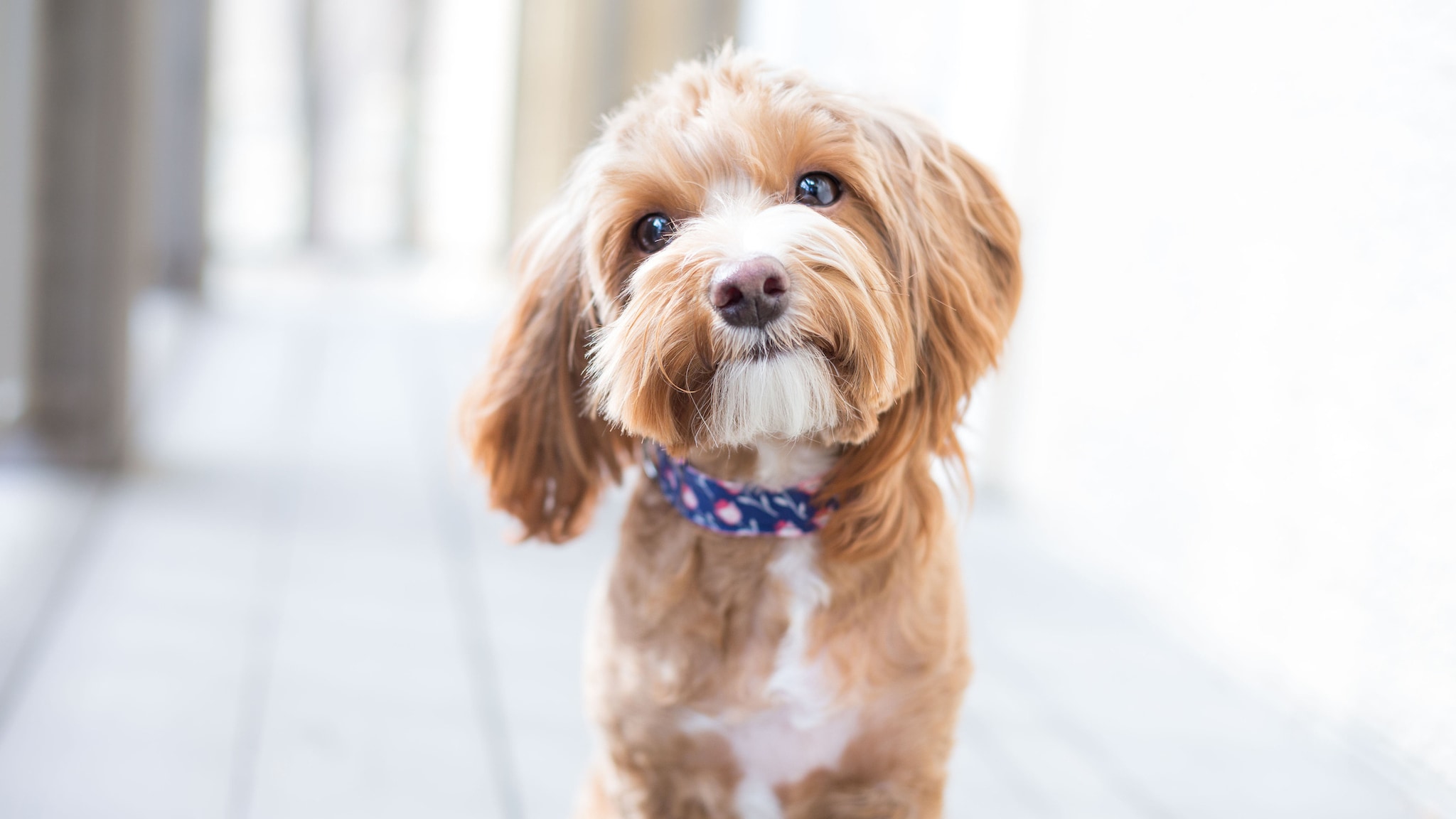
Overview
Dogs can have many positive effects on the lives of their owners. They influence social, emotional, and cognitive development in children, promote an active lifestyle, and provide companionship. They have also been able to detect oncoming epileptic seizures or the presence of certain cancers.
Dogs can also help to relieve stress and anxiety in people. Around 38% of U.S. households are estimated to have one or more dogs.
However, dogs of any age can sometimes carry harmful germs that can make people sick. Germs from dogs can cause a variety of illnesses, from minor skin infections to serious diseases.
Latest outbreaks
How to stay healthy around dogs
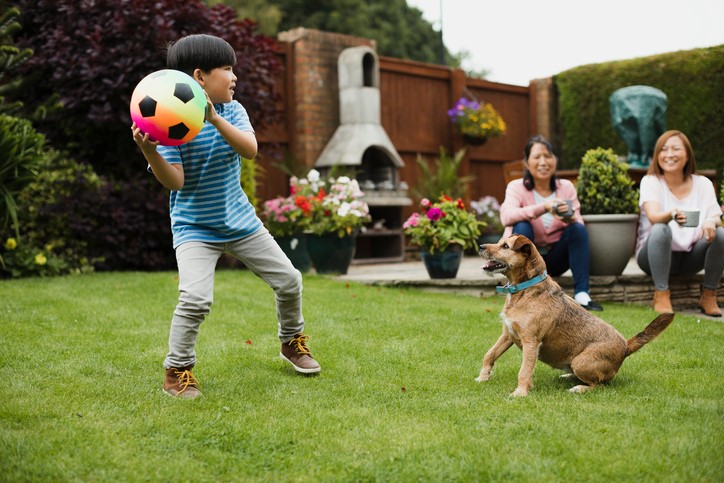
Make sure a dog is the right type of pet for your family before buying or adopting a dog or puppy. Talk to your veterinarian about the right type of dog for you. They can make sure the dog you choose fits your lifestyle and needs.
Wash your hands
Wash your hands with soap and running water:
- After handling dogs, their food and water dishes, or their supplies
- After contact with dog saliva or poop, even if you use a bag
- After handling dog food, treats, toys, or bowls
- Before you eat or drink
You can use an alcohol-based hand sanitizer that contains at least 60% alcohol if soap and water are not readily available.
Handwashing and children
Adults should always supervise hand washing for children under 5 years of age. Washing hands with soap and water is the best way to get rid of germs in most situations.
Safely clean up after your dog
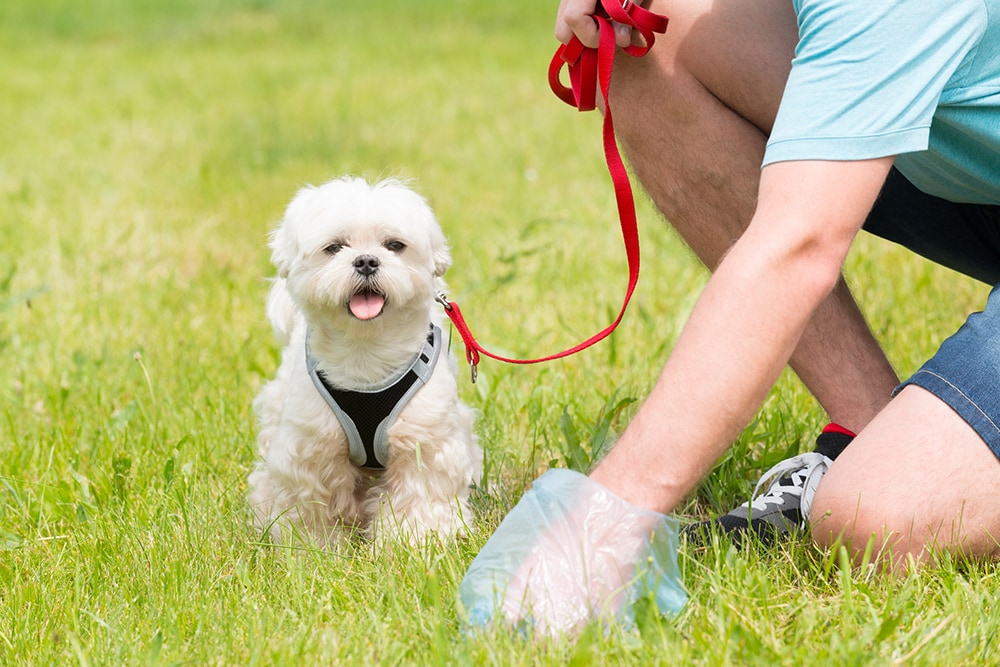
Cleaning up after your dog and keeping the environment clean reduces the risk of diseases spreading to people and other animals.
Always pick up dog poop and dispose of it properly. Dog poop should be picked up, even in your own yard, and especially in areas where children may play.
Prevent dog scratches and bites
Dog bites can cause pain, injury, and spread germs that cause infection. Nearly 1 in 5 people bitten by a dog requires medical attention.
Any dog can bite especially when scared, nervous, eating, or when playing or protecting toys or puppies. Dogs may also bite when they aren't feeling well and want to be left alone.
There are many things you can do at home and within your community to help prevent dog scratches and bites. Practicing the safe handling tips below can help you avoid dog bites.
Know the risks
Children are more likely than adults to be bitten by a dog. The injuries from dog bites in children also tend to be more severe. Most dog bites affecting young children occur during everyday activities and while interacting with familiar dogs.
Having a dog in the household is linked to a higher likelihood of being bitten than not having a dog. As the number of dogs in the home increases, so does the likelihood of being bitten.
Adults with two or more dogs in the household are five times more likely to be bitten. This is comparison to people living without dogs at home. Among adults, men are more likely than women to be bitten by a dog.
How to prevent dog bites and scratches
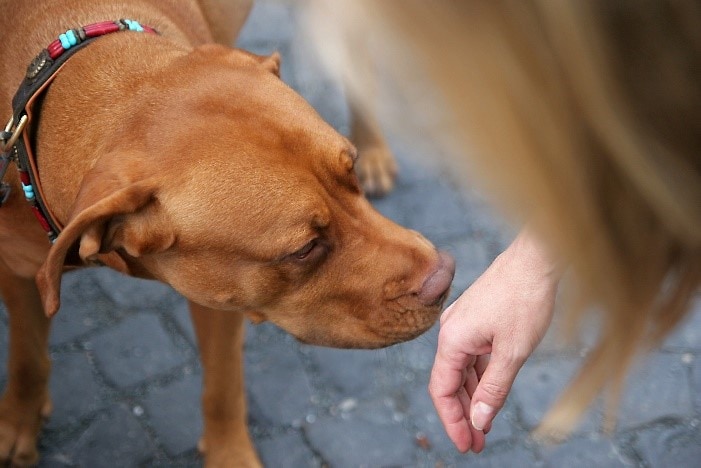
Do not disturb a dog while it is eating, sleeping, or caring for puppies. Do not pet a dog if it appears to be hiding or seeing time alone. Do not continue petting a dog if it seems scared, sick, or angry.
If a dog knocks you over, curl into a ball. Tuck your head and place your hands over your ears and neck. You can also put a purse, bag, or jacket between you and the dog. Avoid doing the following actions to keep yourself safe:
- Never encourage your dog to play aggressively or roughhouse.
- Do not panic or make loud noises, and never run from a dog.
- Avoid trying to break up dog fights.
Petting another owner's dog
- Always ask if it is OK to pet someone else's dog before reaching out to pet it. This is important even if the dog appears friendly.
- Let the new dog approach you first.
- When a new dog approaches you, remain still to allow the dog to feel comfortable.
- Always make sure a dog has seen you and sniffed you before you reach out to pet it.
Preventing dog bites in children
Do not let young children play with dogs without supervision, even if the child has met the dog previously. This includes your family pet dog.
Responsible pet ownership, including socializing your dog and using a leash in public, can help prevent dog bites.
Preventing bites from unfamiliar dogs
Do not approach an unfamiliar dog, even if it seems friendly or healthy. Call animal control if you see a dog in trouble or a dog running loose.
If an unfamiliar dog approaches you, stay still, be calm, and avoid direct eye contact with the dog. Say "no" or "go home" in a firm, deep voice and stand with the side of your body facing the dog. Slowly raise your hands to your neck with your elbows in. Wait for the dog to pass or slowly back away.
What to do if you are bitten or scratched by a dog
Germs can be spread from dog bites and scratches, even if the wound does not seem deep or serious.
For minor wounds
- Wash the wound thoroughly with soap and water.
- Apply an antibiotic cream.
- Cover the wound with a clean bandage.
For deep wounds
Apply pressure with a clean, dry cloth to stop the bleeding for deep wounds. Seek medical attention right away.
Call 911 or your local emergency medical services immediately if you cannot stop the bleeding or you feel faint or weak.
See if a healthcare provider if:
- The wound is serious or deep.
- The wound becomes infected.
- You don't know if the dog has been vaccinated against rabies.
- If it has been more than 5 years since your last tetanus shot.
- The bite is deep.
Serious wounds are characterized by uncontrolled bleeding, extreme pain, and loss of function.
Infected wounds may be red, painful, or swollen, or cause a fever.
Let the healthcare provider know that you were bitten by a dog. The healthcare provider may consult with your state or local health department to help you decide if you need rabies treatment. This is known as rabies postexposure prophylaxis (PEP).
Report the bite
Report dog bites
Anyone who is bitten by a dog is at risk of getting rabies. Consider contacting your local animal control agency or police department to report the incident. This is especially important if you don't know if the dog has been vaccinated against rabies. It is also important to report the bite if the dog appears sick or is acting strangely.
If possible, contact the owner and ensure the animal has a current rabies vaccination. You will need the following information:
- Rabies vaccine license number.
- Name of the veterinarian who administered the vaccine.
- The owner's name, address, and phone number.
How to keep dogs healthy
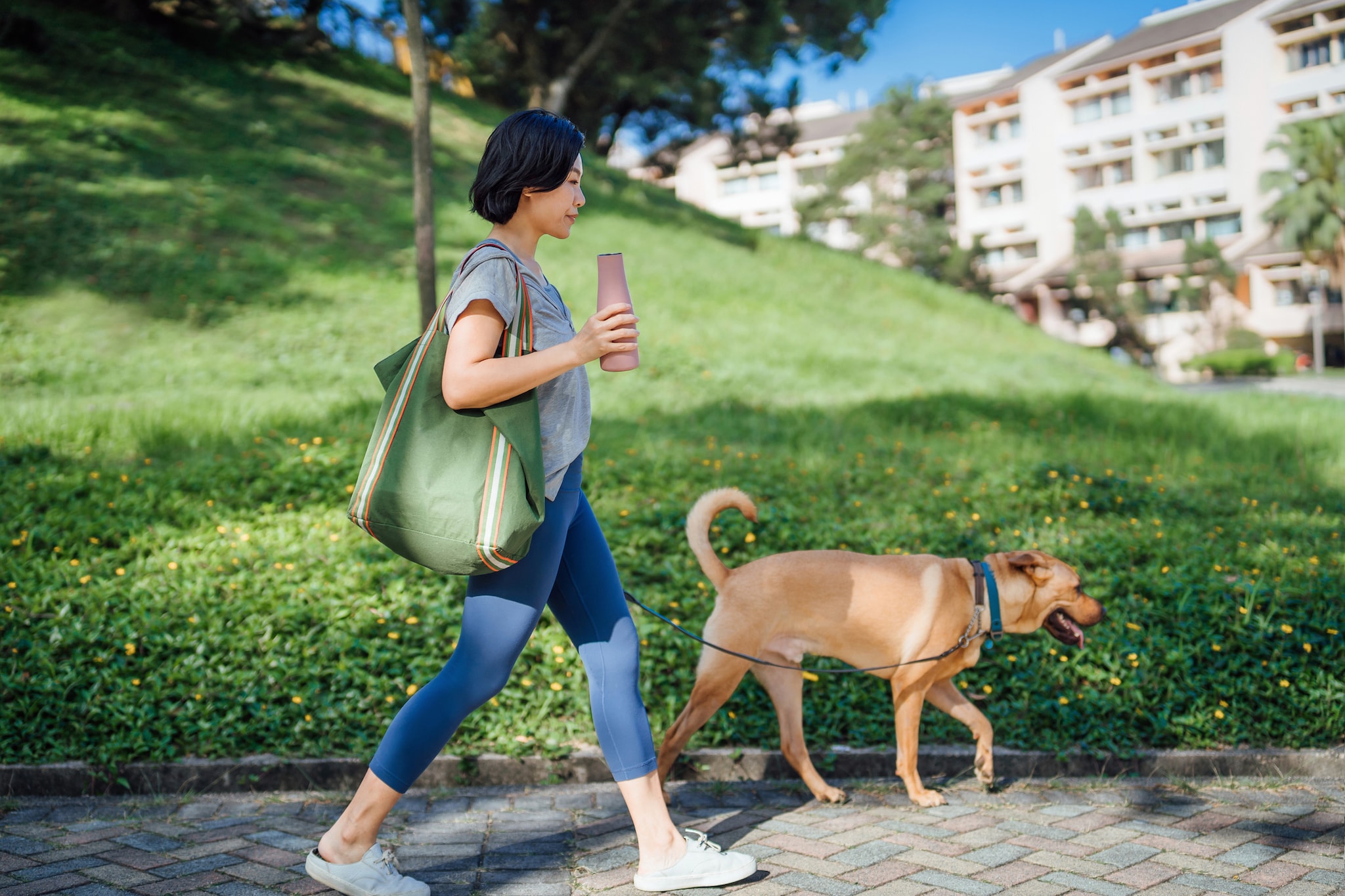
Before choosing a dog
Do your research
Research and learn how to properly care for a dog before buying or adopting. Ask your veterinarian about the proper food, care, exercise, and environment that are best for the dog you are selecting.
Research any laws regarding ownership of certain breeds in your area before buying or adopting a dog.
How to choose a dog
Match a dog's attitude, temperament, size, and activity level with your family. Consider your home, and the amount of time you have to spend with your pet.
Choose a healthy dog
Pick a dog that is bright, alert, and playful. Dogs and puppies should have shiny, soft fur that is free of poop.
Signs of illness in a dog include appearing sluggish or depressed, having diarrhea. Abnormal breathing, and fluid running from its eyes or nose is also common in dogs with illnesses.
Make sure to take your new dog or puppy to the veterinarian within a few days to a week after adoption.
If your new dog becomes sick or dies
Take your dog to the veterinarian promptly If your dog becomes sick or dies soon after purchase or adoption. Make sure to tell your veterinarian if the pet was adopted internationally.
Inform the pet store, breeder, or rescue organization about the pet's illness or death.
Thoroughly clean the area your pet lived in.
How to house your dog
It is important to provide a safe, warm, and comfortable environment for your dog.
Housing your dog outside
If your dog will be housed outside, provide shelter such as a doghouse. This will protect your dog when it is cold or rainy and shade for when it is hot. Protecting your dog from the changes in weather will reduce stress and help keep it healthy.
Make sure your dog has access to fresh, clean water and food every day.
Consider fencing your yard
Consider fencing in your yard. A fence gives your dog room to play. It will also protect it from wild animals and reduce the risk of strangers interacting with your dog.
Don't tie up your dog outside
It is not recommended to keep dogs tied up outside. Tying dogs outside is illegal in some areas. In addition, dogs that are tied up are more likely to bite than those roaming freely in a fenced yard.
Keep your dog's environment clean
If your dog uses a kennel or doghouse, make sure to clean it regularly to prevent build-up of poop.
Feed your dog safely
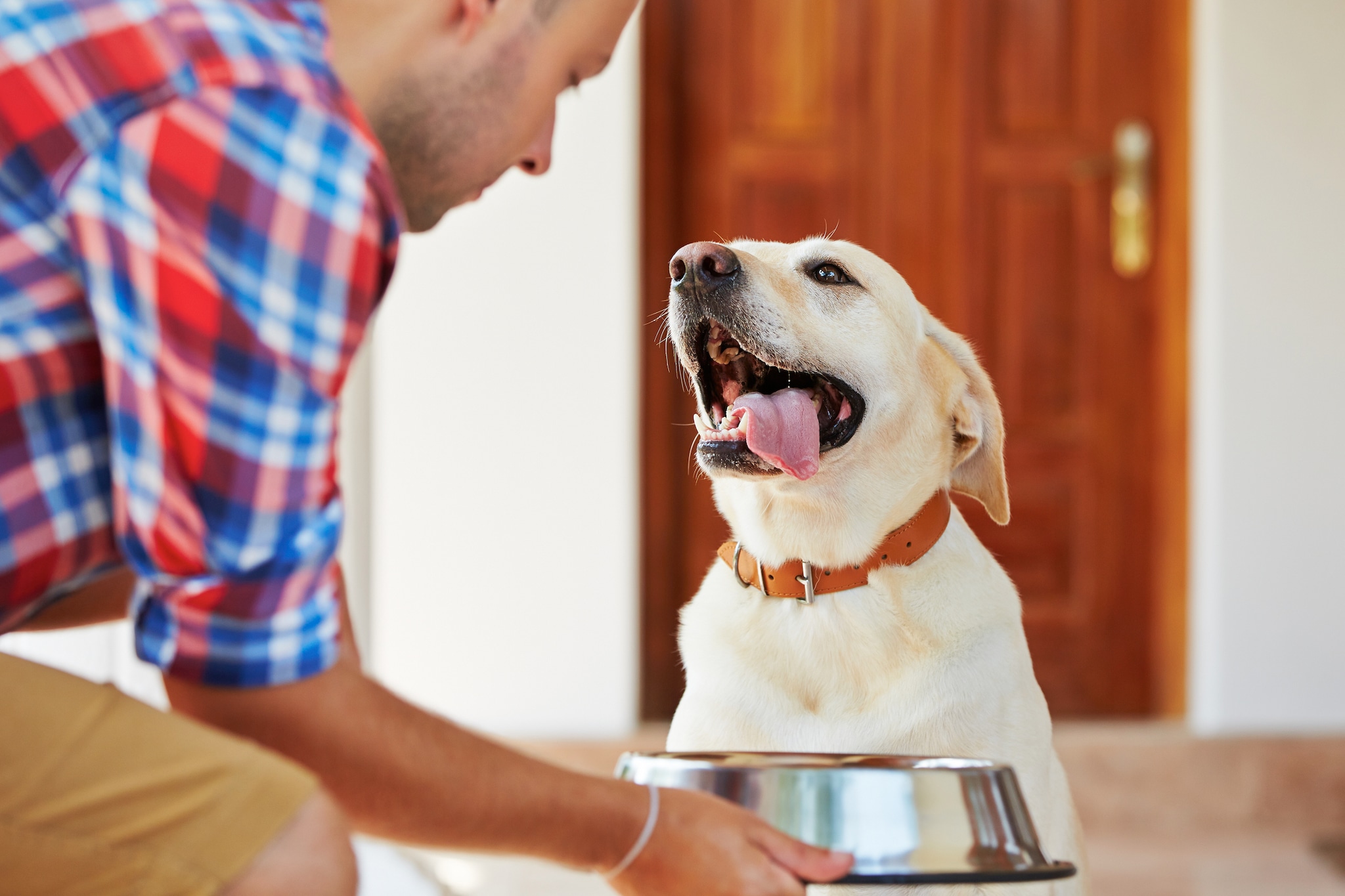
- Do not feed dogs in areas where human food is prepared or eaten.
- Always wash your hands after touching dog food or feeding your dog.
- Store dog food separately from human food.
- Do not feed your dog a raw diet. *
- Talk to your veterinarian about the proper food for your dog.
*Germs like Salmonella and Listeria have been found in raw pet foods, even packaged foods sold in stores. These germs can make you and your pet sick.
Monitor your dog's health
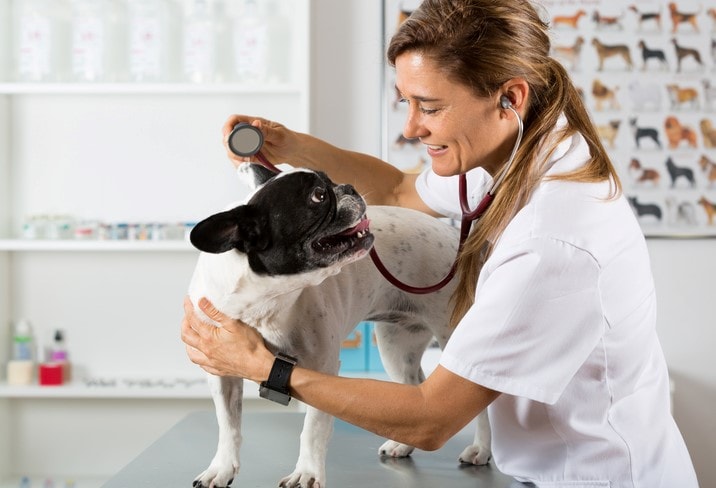
Get routine check-ups with your dog's veterinarian
Take your dog to the veterinarian regularly to keep it healthy and prevent infectious diseases. Talk to your veterinarian about preventive treatments for fleas, ticks, heartworms, and other parasites.
Contact your veterinarian if you notice any signs of illness in your pet. Keep in mind that even a dog that looks healthy can spread germs to people and other animals.
Get your dog vaccinated
Keep your dog up to date on routine vaccinations like rabies. Vaccines can help protect your dog from dangerous diseases and help them live a longer life.
Tell your veterinarian about your dog's lifestyle, including whether it is often around other dogs or other animals. Ask about other vaccines you may need or want for your dog, like kennel cough.
Clean up househould messes immediately
Make sure to clean up any dog urine, poop, or vomit in the house immediately, and disinfect the area well. Use disposable gloves and make sure to wash your hands thoroughly afterwards.
Protect your dog from ticks
Talk to your veterinarian about the best tick prevention products for your dog and tickborne diseases in your area.
Check your dog for ticks every day to further reduce the chances that a tick bite will make your dog sick. This is especially important after they spend time outdoors. If you find a tick on your dog, remove it right away.
Resources
Selecting and caring for a pet dog
- Selecting a Dog (American Veterinary Medical Association)
- International Dog Adoptions: Get the Facts
- Preventing ticks on your pets
Traveling with a dog
Educational materials
- Pet Food Safety (Poster)
- Raw Pet Food Safety (Poster)
- Pet Disaster Kit Checklist
- Check Pets for Ticks (Infographic)
- Cleaning and Disinfecting Pet Supplies (Poster)
- Stay Healthy Around Animals (Coloring Book)
